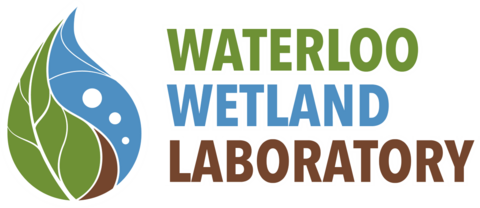Our Focus
We are motivated by the twin biodiversity and climate change crises. We seek to understand the responses of biological communities to environmental stressors and disturbances to inform environmental management, monitoring, assessment, and restoration in that context. Our primary focus is on wetlands and other aquatic habitats. Our principal scale of interest is community ecology, though we also study at the population and ecosystem scales. Our approach uses the knowledge co-production model, wherein we work with our research partners in government, industry, and at environmental NGOs to identify crucial science gaps, co-develop research programs to address those gaps and to mobilize the outcomes of our research to maximize the impact of our science. More details about our research are available through the “Research” tab, including a variety of recorded webinar presentations. Media coverage of our research is linked in the “In The Media” tab.

Our Commitment
Funding for scientific research and training comes mainly from taxpayers and imparts to us a duty to apply those funds responsibly and impactfully. Our goal is to inform policy and practice with scientific evidence and we invest substantively in its achievement. We are committed to applied, policy-relevant research that informs industry regulation, compliance or effects monitoring, and natural resource management.
We are therefore also committed to transparency and accessibility, and thus strive to make our scientific publications available through pre-prints, data archiving, and open-access publishing. We also follow-up on research with adequate technology transfer and knowledge mobilization efforts to communicate our results to government, non-governmental organization (NGO), and industry end users as well as general interest audiences. For a great example, please see this video, narrated by Dr. Rooney, which depicts the implementation of various field-assessment tools for wetlands constructed as part of oil sands mine reclamation.
For more examples, check out our “In The Media” tab and recorded presentations archived under Research.
Our Students
Graduate and undergraduate thesis students in our lab learn practical field skills, advanced statistical methods, and ecological principles. They also receive extensive instruction on written and oral scientific communication. We focus not only on communicating results with fellow academics, but also on communicating our research findings with government, NGO, industry, and public stakeholders. Our lab’s code of conduct guides our actions as we actively foster a community of learners with a culture that is collaborative, inclusive, respectful and in which individuals act with integrity, accountability and trust. Students in the lab develop valuable leadership and teamwork skills in addition to developing their autonomy and independence.
Our Values
Our core values are elaborated on in our lab’s code of conduct. They include:
- Integrity - we are honest and transparent. We keep our word and avoid conflicts of interest
- Responsibility and accountability - we are citizens of the lab and share responsibility for lab operations and safety. We are accountable for our actions and thoughtful in our engagements.
- Positivity, respect and collegiality - we work together to ensure each other’s success. We respect each others beliefs, experience, and opinions. We do not denigrate or shame or mock one another.
- Curiosity, open-mindedness, and humility - we are lifelong learners who are curious about the world and our selves. We try not to make assumptions and to learn from our interactions, especially our setbacks and mistakes.
- Sustainability - we are stewards of the Earth and exercise all efforts to minimize the impact of our research on the environment. We opt to conserve, reduce, reuse, and share to minimize our footprint and to stretch our lab resources as far as they can go.
- Compassion - we are kind to ourselves and others. We prioritize ours and each other’s mental and physical health.
We practice these core values internally and in all our outreach and external interactions. We recognize that we are ambassadors for the Waterloo Wetland Lab, the Biology Department, and the University of Waterloo.